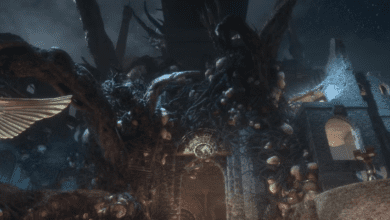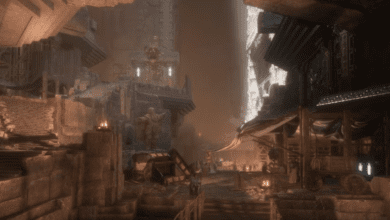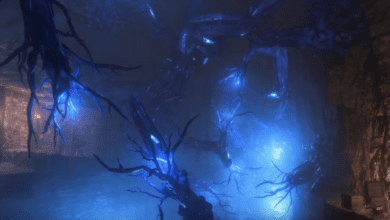Dragon Age: The Veilguard – All Dialogue Symbols Explained for Better Choices
Key Takeaways:
- Dialogue choice symbols in Dragon Age: The Veilguard convey specific emotions and personality tones, impacting character relationships and the story.
- Understanding each symbol’s meaning can enhance role-playing by aligning dialogue choices with your character’s desired personality.
- Choosing the right symbols is essential for players aiming to shape the narrative and achieve specific game outcomes.

As a beloved RPG series, Dragon Age has consistently offered players immersive storytelling and character-driven choices. With Dragon Age: The Veilguard, BioWare introduces an updated dialogue system that uses visual symbols to indicate the tone and intent of dialogue choices, allowing players to predict how their words will impact relationships, storylines, and overall game progression.
However, without clear guidance on what each symbol represents, players may find it challenging to anticipate the emotional impact of each line. This guide provides a breakdown of each dialogue symbol in The Veilguard, ensuring you’ll be well-prepared to navigate conversations with clarity and confidence.
The Dialogue Symbol System in Dragon Age: The Veilguard
The dialogue system in The Veilguard enhances the role-playing experience by incorporating visual symbols that represent emotional tones, from flirtatious to confrontational. These icons provide a quick way to gauge the type of response your character, Rook, will give, making it easier to craft a personality and narrative style for your playthrough.

In Dragon Age: The Veilguard, the symbols appear beside your dialogue options, giving players insight into the mood and tone each choice will convey. Let’s explore each symbol and what it means for the conversation.
All Dialogue Symbols and Their Meanings
| Symbol | Meaning | Description |
| Important Choice | Branching Path | This icon signifies a major choice, one that will significantly impact the storyline, affect your relationship with other characters, or change the world around you. |
| Honestly | Honest Attitude | Choosing this option reveals your character’s genuine thoughts, showcasing a forthright and transparent personality. Perfect for players aiming to build trust or make direct connections. |
| Playfulness | Humorous | This choice shows a playful, lighthearted side. Ideal for interactions that call for humor, it can lighten the mood or strengthen bonds with certain characters. |
| Cynical | Cynical and Spiteful | A cynical response conveys doubt or sarcasm, possibly stirring tension. This is fitting for players who want a jaded or critical stance in conversations. |
| Toughness | Tough and Nonchalant | A tough response signals strength and resilience, often showcasing a “no-nonsense” attitude. Use this to express boldness and emotional strength. |
| Nervous | Cautious and Nervous | This choice shows hesitation or uncertainty, reflecting a careful and anxious approach, possibly altering a character’s perception of Rook’s confidence. |
| Sentimental | Sentimental and Melancholic | For emotional or reflective moments, this option conveys a deep, nostalgic tone, often resonating with characters who value empathy or connection. |
| More Information | Inquire | Choosing this symbol allows you to gather additional information. Selecting it typically extends the conversation and deepens the exchange without ending the dialogue. |
Using Dialogue Symbols to Shape Your Story
In The Veilguard, each choice you make shapes the story. These icons let you tailor Rook’s personality by consistently choosing responses that reflect a specific tone. Want to build a steadfast, respected hero? Opt for tough or honest choices. Or maybe you’re leaning towards a complex antihero cynical and nonchalant options will help craft that narrative.
Some symbols, particularly the Important Choice icon, signal decisions that branch the storyline significantly. These moments often alter companion approval ratings and can even shift the fates of cities or allies. Choosing carefully in these branching moments lets you control the overarching story direction, from which alliances you form to which characters remain loyal.
Impact of Dialogue Choices on Companions and World Events
In Dragon Age: The Veilguard, dialogue choices don’t just influence your relationships with companions they affect the entire world around you. Here’s a breakdown of how your choices impact both allies and overarching story events:
- Companion Approval: Selecting certain tones can increase or decrease companion approval. For instance, a playful companion might appreciate humorous responses, while a more serious ally could respect honesty or toughness. High approval ratings often lead to deeper bonds and new narrative paths, whereas disapproval could lead to conflicts or closed-off storylines.
- World Outcomes and Storylines: Branching paths determined by Important Choice icons affect broader game elements. This could mean altering the fate of a city, impacting the influence of a faction, or changing how NPCs interact with you. Some decisions will even carry over throughout the game, giving your story a unique twist based on Rook’s choices.
Tips for Making the Best Dialogue Choices
With these symbols in mind, here are some quick tips to ensure your choices align with the character and outcomes you desire:
- Define Rook’s Personality Early On: Are you playing Rook as a stoic warrior, a compassionate diplomat, or a rogue with a sarcastic edge? Picking consistent dialogue symbols strengthens the role-playing experience and shapes the narrative in line with your vision.
- Be Strategic with Important Choices: Recognize that decisions marked with branching paths can have long-lasting effects. Take a moment to consider the repercussions for both your allies and the game’s broader world.
- Balance Companion Preferences: If you’re aiming to build relationships with specific companions, pay attention to their personalities and respond accordingly. For example, a flirty or humorous companion may appreciate playful choices, while a more battle-hardened ally might favor toughness.
- Use “More Information” to Explore Fully: The Inquire symbol is particularly useful for players who want to uncover additional lore, character backgrounds, or clues before committing to a response.
Frequently Asked Questions
Q: What is the purpose of dialogue symbols in Dragon Age: The Veilguard?
A: The dialogue symbols are designed to help players understand the emotional tone of each choice, enabling them to guide conversations, influence character relationships, and affect story outcomes.
Q: Do dialogue choices have a significant impact on the game’s story?
A: Yes, especially choices marked with the Important Choice icon. These selections can alter companion approval, shape alliances, and affect the fate of entire cities and factions.
Q: Which dialogue symbol is best for building trust with companions?
A: Honest and sentimental choices tend to foster trust and deepen bonds, but it’s essential to consider each companion’s unique personality.
Q: Can I switch between dialogue tones, or should I stick to one?
A: You can mix tones depending on the situation, but sticking to a specific tone can enhance role-playing and create a consistent personality for Rook.
Q: Does the More Information symbol affect the story?
A: No, choosing to inquire simply extends the conversation without making a final decision, which allows players to gather details before making important choices.
By understanding the meaning behind each dialogue symbol, players can navigate Dragon Age: The Veilguard with a strategy that deepens their role-playing experience and allows them to shape the story in a way that feels uniquely theirs.





